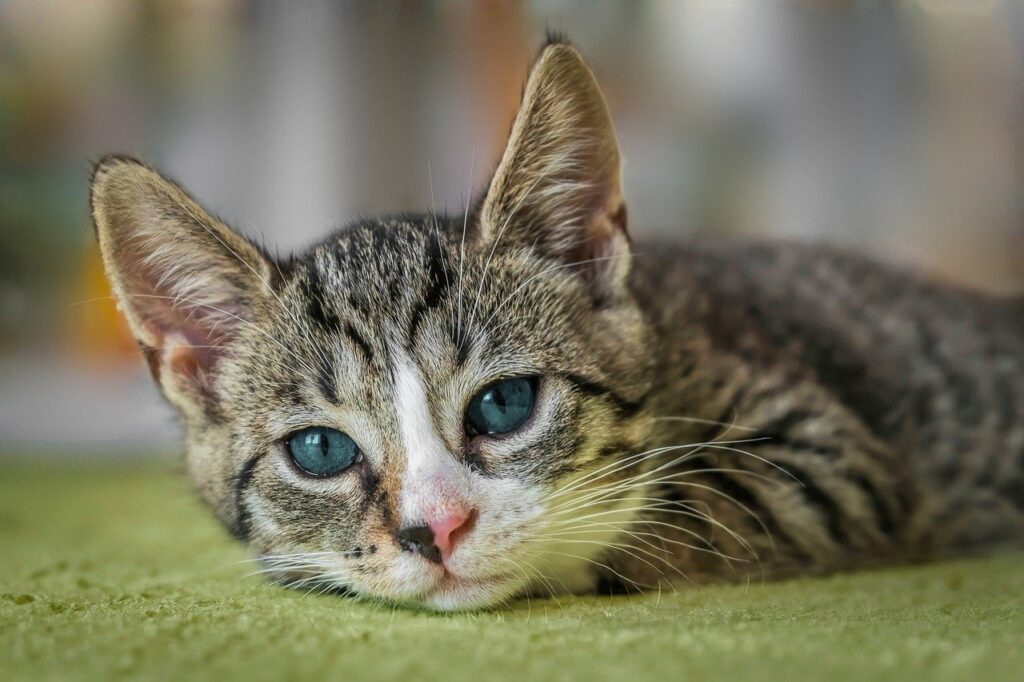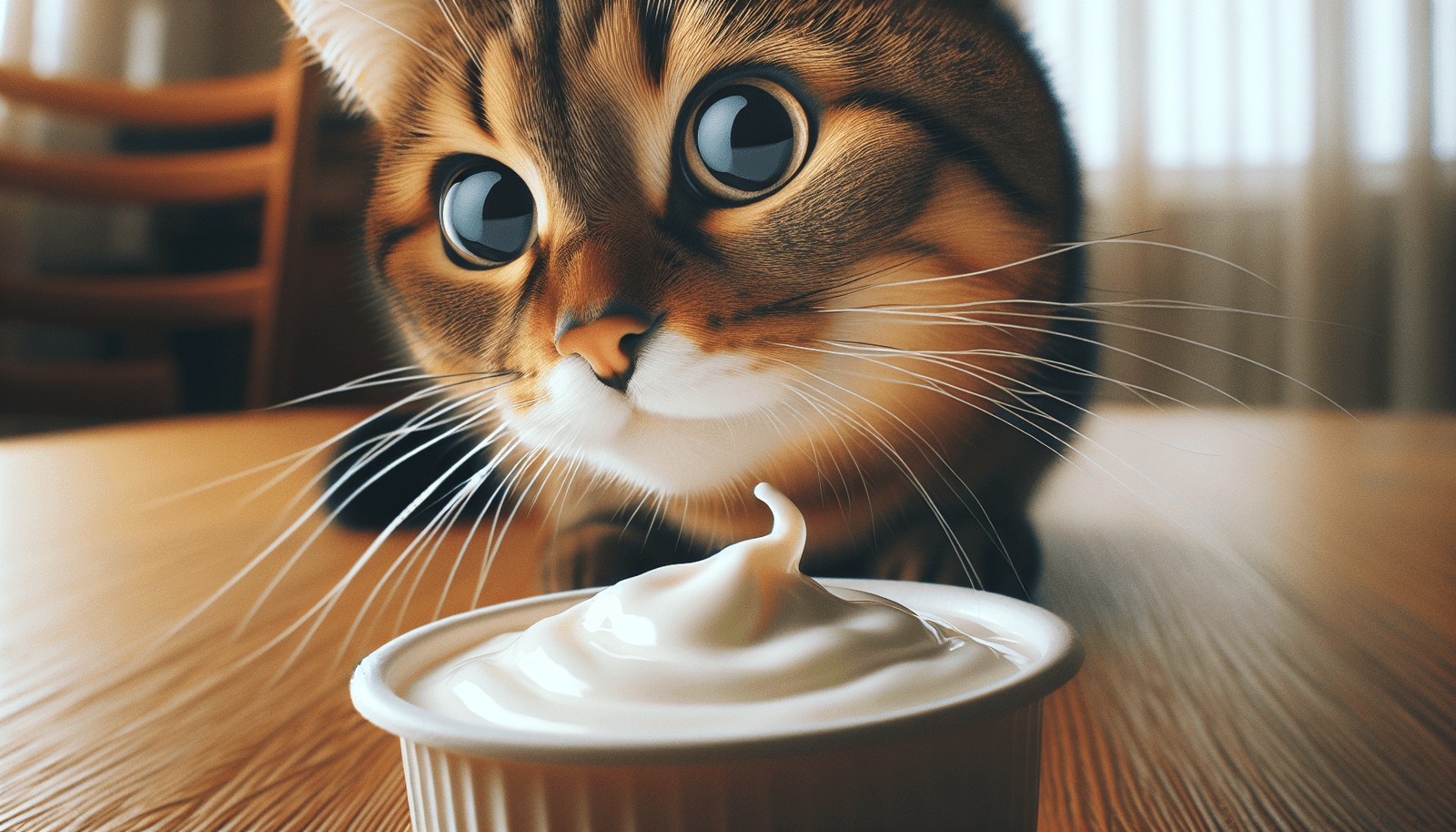Hey there, curious cat owners! Have you ever wondered if it’s safe to share your favorite snack, yogurt, with your feline friend? In this article, we will explore whether or not cats can eat yogurt and discuss the potential benefits and risks of including this dairy product in your cat’s diet. So grab a cup of yogurt for yourself and let’s dive in to find out if it’s a purr-fect treat for your furry companion! Can Cats Eat Yogurt?
Have you ever wondered if your feline friend can enjoy a tasty treat of yogurt? Many cat owners are often curious about whether yogurt is safe for their furry companions to consume. In this article, we will explore the topic in depth and provide you with all the information you need to know about cats and yogurt.

Understanding Your Cat’s Diet
Before diving into the specifics of whether cats can eat yogurt, it’s important to understand the dietary needs of your feline friend. Cats are obligate carnivores, which means they require a diet that is high in animal-based protein. Their bodies are designed to thrive on a diet that is primarily made up of meat. While cats can consume small amounts of plant-based foods, their digestive systems are not well-equipped to process foods like fruits and vegetables.
Why Cats Need a Meat-Based Diet
Cats have specific nutritional requirements that are best met through a diet that is rich in animal proteins, such as poultry, fish, and meat. These proteins provide essential amino acids that cats need for muscle growth, maintenance, and overall health. Additionally, cats require high levels of taurine, an amino acid that is only found in animal tissues. Without adequate taurine, cats can develop serious health issues, including heart disease and vision problems.
Now that we understand the unique dietary needs of cats, let’s explore whether yogurt is a suitable treat for your feline friend.
Can Cats Eat Yogurt?
The short answer is yes, cats can technically eat yogurt. Yogurt is a dairy product that is made by fermenting milk with live bacteria cultures. While yogurt is safe for most cats to consume in small quantities, there are some important considerations to keep in mind.
Benefits of Yogurt for Cats
Yogurt contains probiotics, which are beneficial bacteria that can help support your cat’s digestive health. Probiotics can help restore the balance of good bacteria in your cat’s gut, which can be especially useful if your cat is experiencing digestive issues or has recently been on antibiotics. Additionally, yogurt is a good source of calcium, which is important for your cat’s bone health.
Risks of Yogurt for Cats
While yogurt has some potential benefits for cats, there are also risks associated with feeding it to your feline friend. Cats are lactose intolerant, which means they lack the enzyme lactase needed to properly digest lactose, the sugar found in milk. Yogurt contains less lactose than other dairy products, but some cats may still experience digestive upset or diarrhea after consuming yogurt.
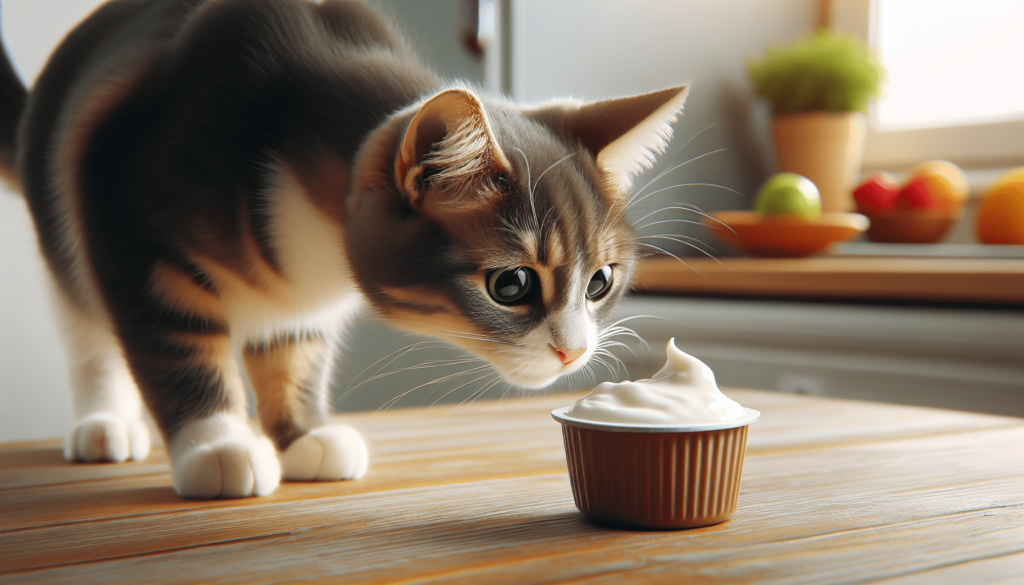
Choosing the Right Yogurt for Your Cat
If you decide to offer your cat yogurt as an occasional treat, it’s important to choose the right type of yogurt. Plain, unsweetened yogurt is the best option for cats, as it does not contain added sugars or artificial sweeteners that can be harmful to your cat. Avoid flavored yogurts, as they often contain high amounts of sugar, which can lead to obesity and other health issues in your cat.
How Much Yogurt Can Cats Eat?
If you decide to give your cat yogurt, it should only be offered as an occasional treat and in small amounts. A teaspoon or two of plain yogurt once in a while is sufficient for most cats. It’s important to monitor your cat’s reaction to the yogurt and watch for any signs of digestive upset. If your cat experiences diarrhea or vomiting after eating yogurt, discontinue offering it to your cat in the future.
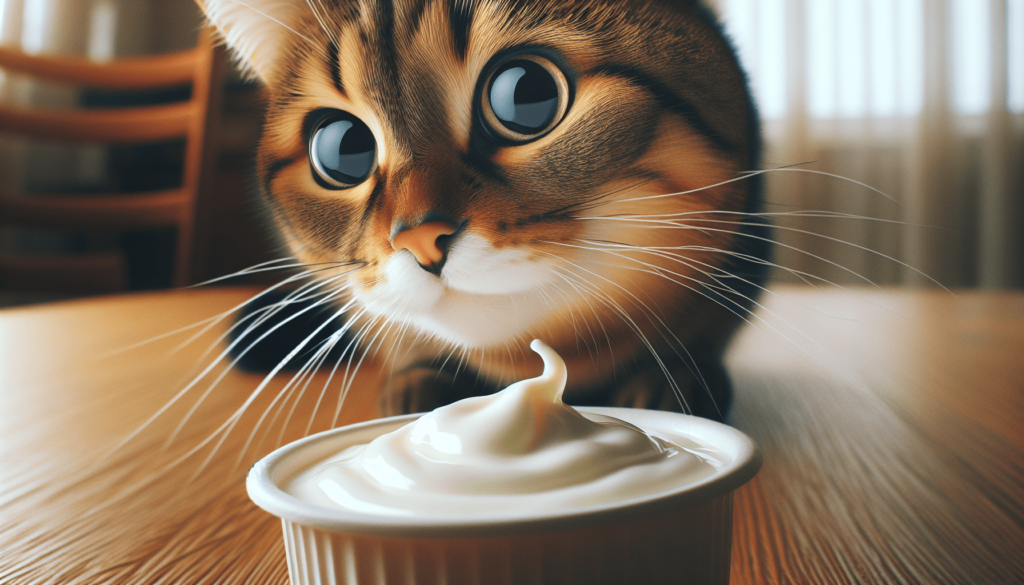
Alternatives to Yogurt for Cats
If you’re looking for other ways to support your cat’s digestive health without feeding them yogurt, there are several alternative options to consider.
Probiotic Supplements
Probiotic supplements are available for cats and can be a good alternative to yogurt for supporting your cat’s gut health. These supplements contain beneficial bacteria that can help promote a healthy balance of gut flora in your cat’s digestive system. Probiotic supplements come in various forms, including powders, capsules, and paste, making it easy to find a suitable option for your cat.
Fiber-Rich Foods
Adding fiber-rich foods to your cat’s diet can also help support their digestive health. Foods like canned pumpkin or psyllium husk can help regulate your cat’s bowel movements and promote healthy digestion. Be sure to consult with your veterinarian before adding any new foods or supplements to your cat’s diet to ensure they are safe and appropriate for your furry friend.
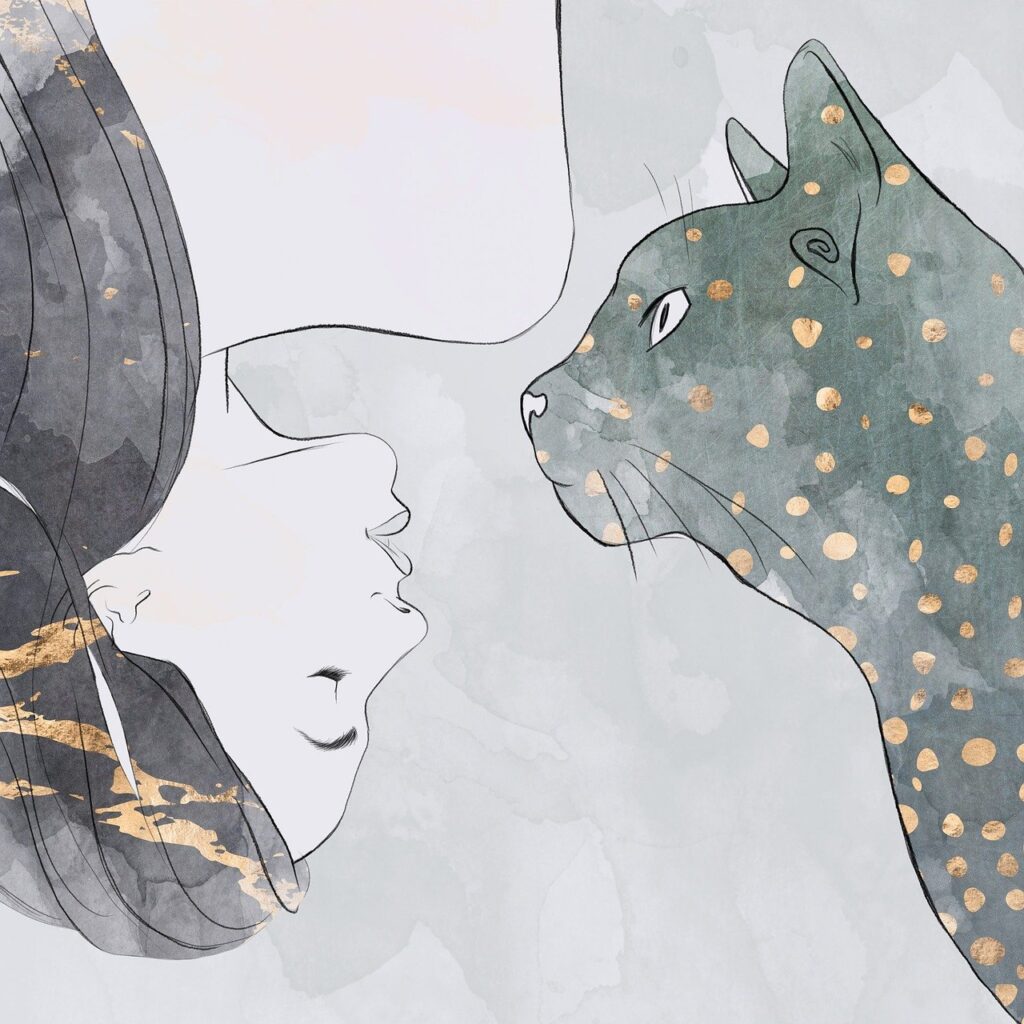
Conclusion
In conclusion, while cats can technically eat yogurt, it’s important to feed it to them in moderation and choose the right type of yogurt to avoid any potential digestive issues. If you decide to offer your cat yogurt as a treat, opt for plain, unsweetened yogurt and monitor your cat’s reaction closely. It’s always best to consult with your veterinarian before making any significant changes to your cat’s diet to ensure their health and well-being are prioritized. Remember, every cat is different, so what works for one cat may not work for another. With some careful consideration and attention to your cat’s individual needs, you can make informed decisions about whether to include yogurt in your cat’s diet.
